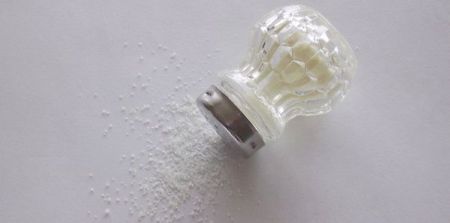A new research study published in JAMA Internal Medicine claims that older people who consume less than 1500 mg of sodium per day do not enjoy a lower risk of fatality, nor do they enjoy lower risks of heart failure or other cardiovascular events within 10 years, compared with individuals who consume 1500 to 2300 mg of sodium per day. The study creates more debate about restricting sodium intake for the prevention of cardiovascular disease and reducing mortality rates.
"We didn't find any benefit (of lowering daily sodium intake to less than 1500 mg)," said lead researcher Dr. Andreas Kalogeropoulos of Emory University in Atlanta, Georgia. "Having said that," Kalogeropoulos continued, "we did not find any harm either. But now, considering the totality of the evidence, it might be okay for older adults to target the more lenient sodium recommendation. It's difficult to target the lower levels, and we don't have solid data showing any benefit. And there's also the chance of interaction with other aspects of their diet and comorbidities, especially if they're taking multiple medications."
Salty Debate
Reducing sodium intake for cardiovascular benefit is controversial. One noteworthy contradiction lies within the 2010 Dietary Guidelines for Americans, released by the U.S. Centers for Disease Control (CDC). The CDC guidelines recommend a maximum daily sodium intake of 2300 mg for the general population, but only 1500 mg for individuals 51 years and older, African Americans, and individuals suffering from hypertension, diabetes, or chronic kidney disease.
Other organisations such as the American Heart Association also support reducing dietary sodium levels but are more aggressive in their targets, recommending that all individuals aim for 1500 mg of sodium daily at maximum.
In 2013, the Institute of Medicine (IOM) challenged those aggressive targets when they conducted a full comprehensive review of the literature and concluded there was no evidence to recommend lowering sodium to levels currently suggested by federal guidelines. The IOM stated the evidence was not strong enough to recommend lowering daily sodium intake to the 1500 to 2300 mg/day range, nor was there evidence to reduce sodium beyond a "moderate range" for the reduction of hard cardiovascular events like myocardial infarction (MI) or stroke.
Analysing the Data
The latest results are based on the Health, Ageing and Body Composition (Health ABC) study, which followed a decade-long follow-up data of 2,642 adults who were aged 71 to 80 years old. Kalogeropoulos said that in the Health ABC study, the average intake of salt was approximately one teaspoon per day. A teaspoon of salt contains about 2300 mg of sodium on average.
Of the older adults who data were analysed in the study, 291 consumed less than 1500 mg/day of sodium. Meanwhile, 779 consumed between 1500 and 2300 mg daily, and 1572 consumed more than 2300 mg daily.
The researchers observed no benefit in terms of reducing mortality, incident cardiovascular disease, or heart failure among the older adults ingesting less than 1500 mg of sodium daily. The results were the same for older adults with or without hypertension, as well as among men and women, and white and black adults.
Dangers of High Sodium Intake
While no benefit was found of ingesting lower levels of sodium, the researchers noted a trend toward an increased risk of death after 10 years for older individuals who consumed more than 2300 mg of sodium daily. The mortality rates for those who consumed less than 1500 mg/day, 1500 to 2300 mg/day, and more than 2300 mg/day were 33.8 percent, 30.7 percent, and 35.2 percent, respectively.
The dangers of high sodium intake were particularly pronounced among females and black participants. However, in the overall population and in the subgroups, the increased risk of mortality with greater sodium consumption was not statistically significant.
Call For More Research In Special Populations
"There were some clear trends toward increased event rates," Kalogeropoulos said. He added that there was no definitive evidence that daily sodium levels beyond 2300 mg could cause harm, given the limits of the study to detect differences in events among the participants.
"I think the current CDC recommendations are the safest approach until we have more data," Kalogeropoulos said. "The potential exception is that older adults may aim for 2300 mg per day, which is about one teaspoon of salt daily. This sodium level might be okay instead of the recommended lower level of 1500 mg per day."
Kalogeropoulos added that there was a need for continued study of sodium targets in special populations, such as people who suffered heart failure. More research will be carried out in the future, to be led by Dr. Javed Butler of the Stony Brook University School of Medicine, and funded by the National Institutes of Health.
Source: Heartwire
Image Credit: Wikimedia Commons
Latest Articles
cardiovascular health, sodium
A new research study published in JAMA Internal Medicine claims that older people who consume less than 1500 mg of sodium per day do not enjoy a lower risk...



























